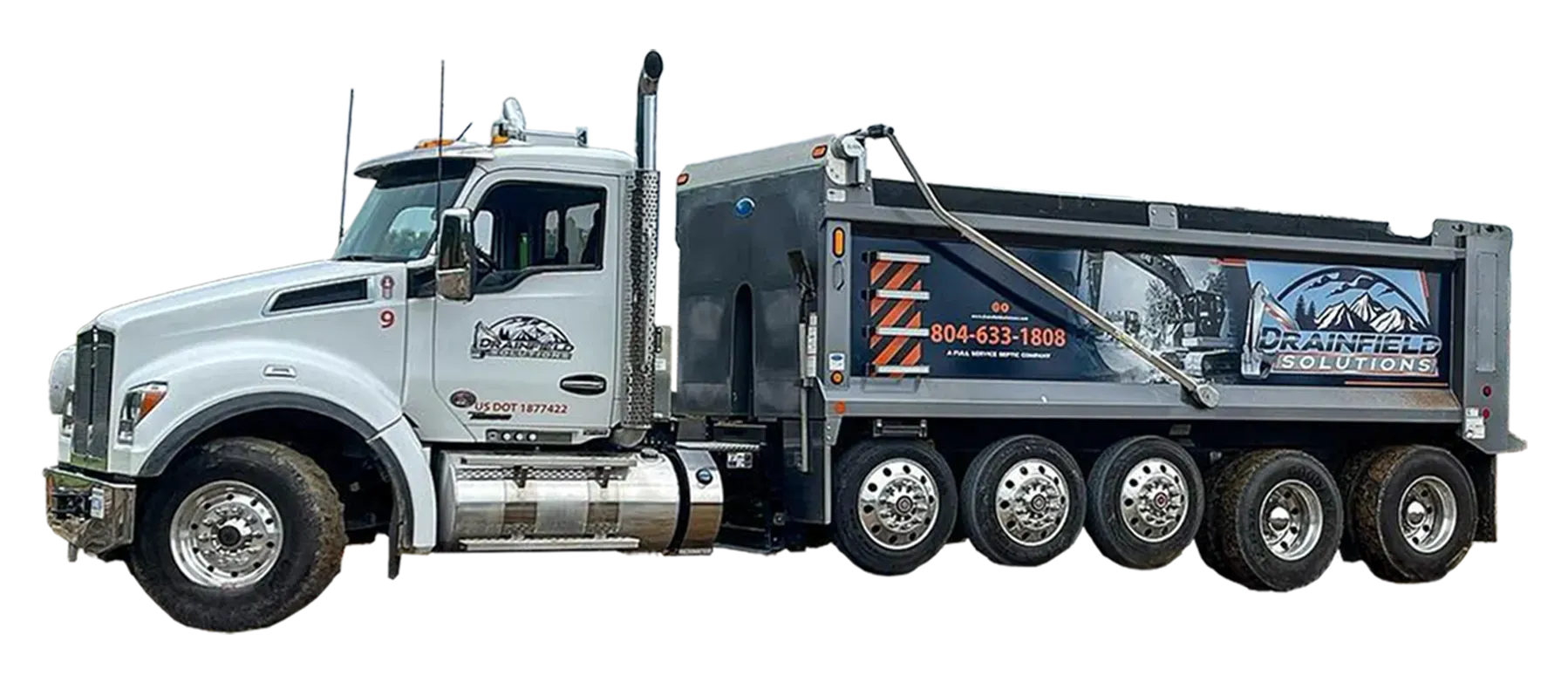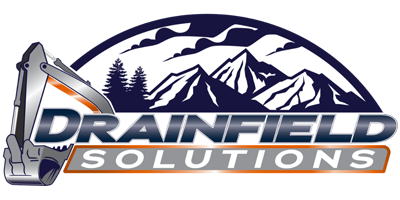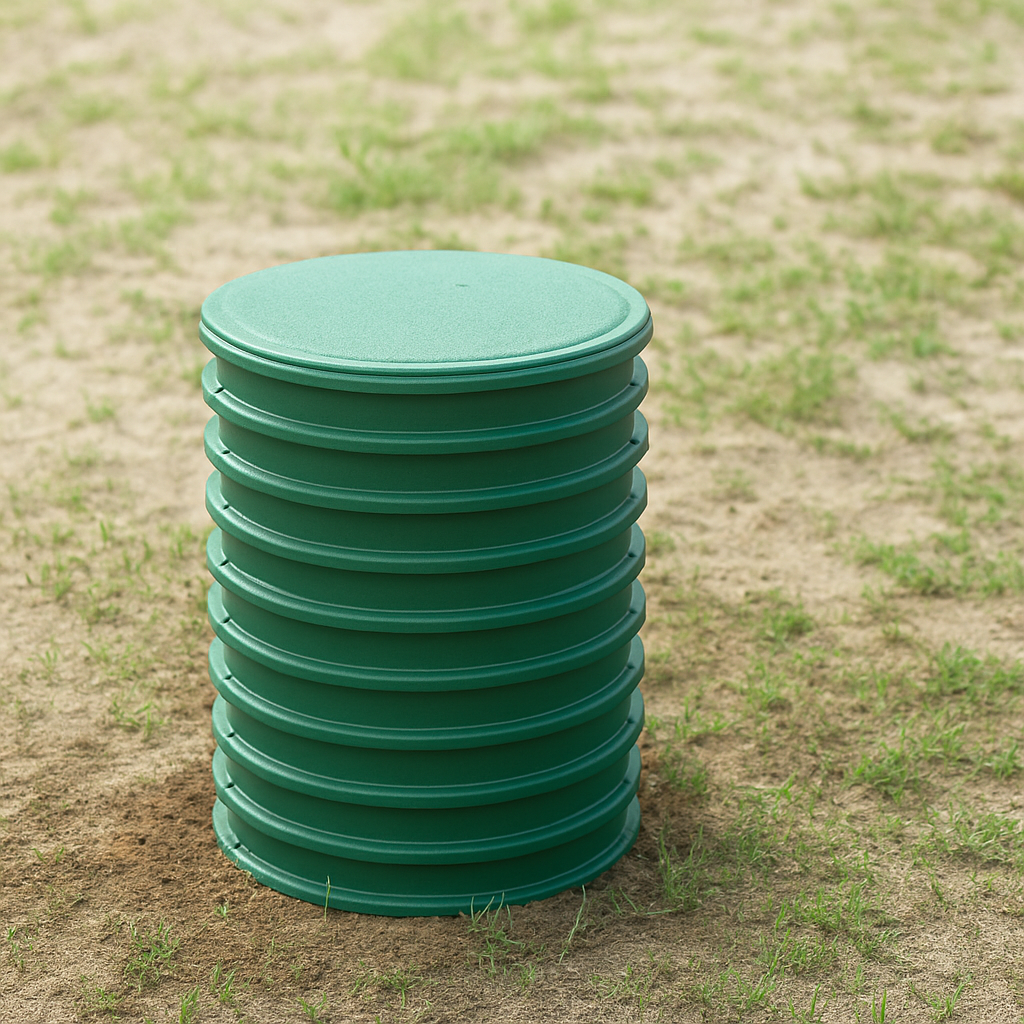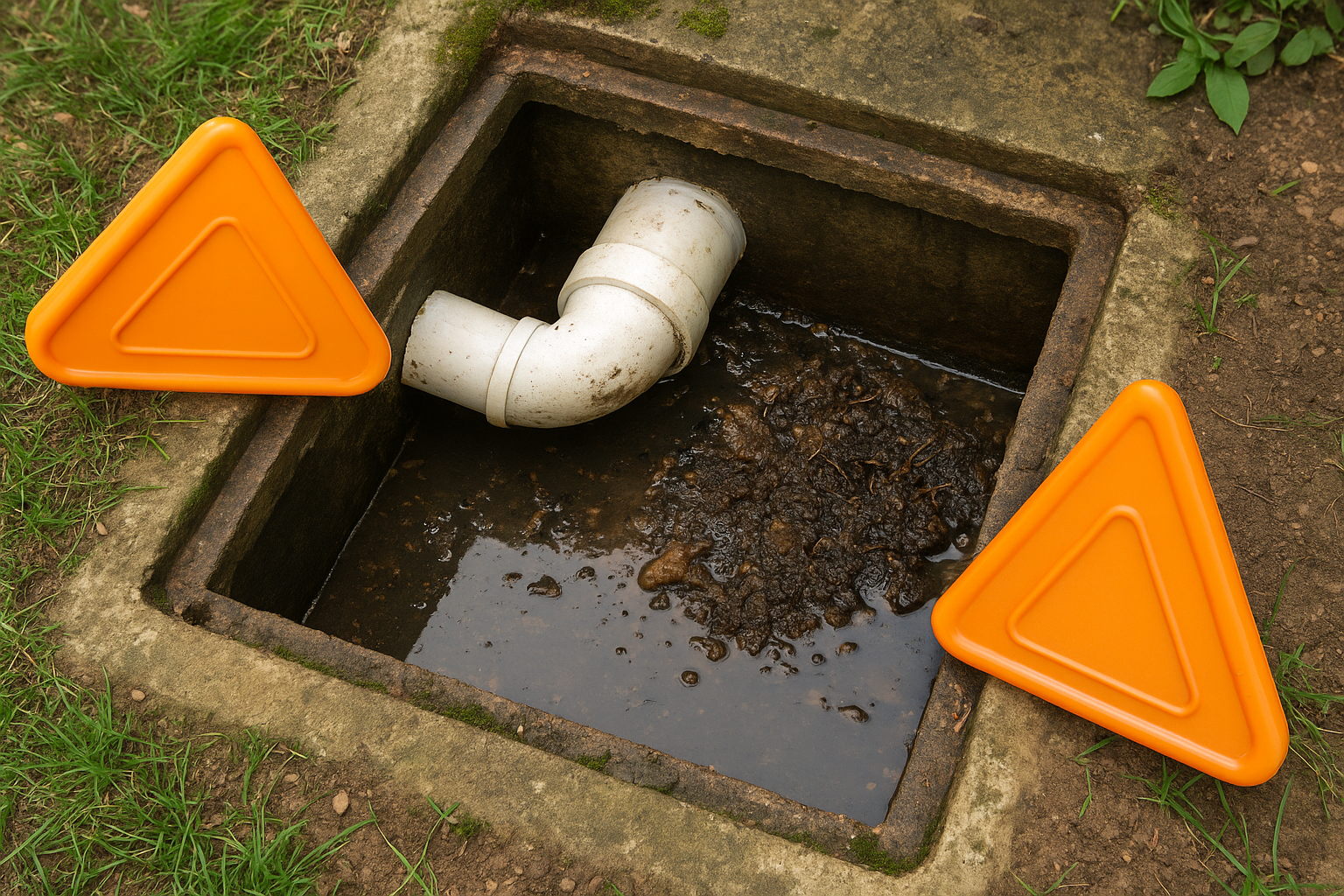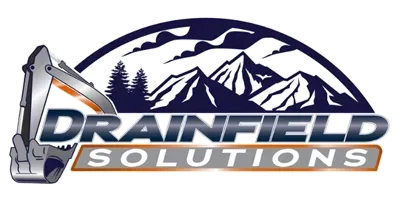
7 Tips to Prevent Root Intrusion in Your Drainfield And Prevent Costly Drainfield Repairs
January 2, 2025
Roots. They’re a tree’s lifeline to water and nutrients, but they can also be your drainfield, or leach field's, worst nightmare. If left unchecked, roots can find their way into your drainfield pipes, causing clogs, damage, and a whole lot of headaches. The good news? You can take simple steps to keep those roots where they belong—far away from your septic system. Let’s dive into how to prevent root intrusion and keep your drainfield running smoothly.
Why Are Roots Drawn to Your Drainfield (Leach Field)?
Before we get into prevention tips, let’s talk about why roots love your drainfield so much. Your drainfield is essentially a nutrient buffet. The water and organic material that flow through your system create a prime environment for roots to thrive. Trees and shrubs “smell” this tasty combination (yes, roots can sense water and nutrients!) and send out their roots in search of the good stuff.
While it might seem like a tree-root love story, it’s anything but romantic for your drainfield. Once roots infiltrate your pipes, they can cause serious problems, including:
- Clogs: Roots can block wastewater from flowing properly.
- Pipe Damage: Growing roots can crack or crush pipes over time.
- System Overload: A clogged drainfield can lead to backups in your home and yard.
The best way to avoid these problems is to keep roots out in the first place.
Tips for Preventing Root Intrusion in Your Drainfield
Here’s how to protect your drainfield from root intrusions:
1. Know Your Drainfield Location
You can’t protect your drainfield from roots if you don’t know where it is.
- Check your septic system layout plan or consult a professional to identify your drainfield’s exact location.
- Mark the area with flags, stakes, or landscaping features to remind yourself (and others) to keep it off-limits for tree planting.
Knowledge is power when it comes to root prevention!
2. Choose the Right Plants
Not all plants are created equal when it comes to drainfield safety.
- Go for Shallow-Rooted Plants: Grass, ground covers, and wildflowers are your best friends. These plants don’t send roots deep enough to interfere with your drainfield.
- Avoid Trees and Shrubs: Most trees and shrubs have deep, aggressive root systems that can wreak havoc on your pipes.
Pro Tip: If you must have trees in your yard, plant them at least as far away from the drainfield as their expected mature height. For example, if a tree grows 50 feet tall, plant it 50 feet away—or farther.
3. Install Root Barriers
Root barriers are like an invisible fence for roots.
- What They Are: Physical or chemical barriers that block roots from growing into your drainfield.
- How They Work: They create a protective zone around your pipes by either redirecting roots or inhibiting their growth.
- Installation: These can be installed by a professional or as a DIY project if you’re feeling handy.
Root barriers are a great option if you already have trees or shrubs near your drainfield that you can’t bear to part with.
4. Watch Your Watering Habits
Believe it or not, how you water your yard can encourage or discourage root growth.
- Avoid overwatering near your drainfield—it’s already getting plenty of moisture from the system.
- Water trees and shrubs far away from your drainfield to draw roots in the opposite direction.
Roots follow the water, so be strategic about where you put it!
5. Regularly Inspect and Maintain Your System
Catch problems early by keeping a close eye on your septic system.
- Schedule routine inspections to ensure your drainfield is functioning properly.
- Look for warning signs of root intrusion, such as slow drains, soggy patches in your yard, or unusual odors.
- Pump your septic tank regularly to prevent solids from making their way into the drainfield and attracting roots.
An ounce of prevention is worth a pound of cure when it comes to root intrusion.
6. Use Root-Killing Products Wisely
If you suspect roots are already in your pipes, certain products can help keep them at bay.
- Copper Sulfate: A common root-killing agent that’s safe for septic systems when used correctly.
- Foaming Root Killers: These products coat the inside of your pipes to stop root growth.
Always follow the product instructions and avoid overuse to protect your system and the environment.
7. Know When to Call the Pros
Sometimes, root intrusion is too advanced for DIY solutions.
- If you’re dealing with major clogs, backups, or persistent root problems, it’s time to call in a professional.
- A septic expert can assess the situation, clear out roots, and recommend long-term solutions to keep your drainfield safe.
Don’t wait until a small issue becomes a big, expensive problem.
What to Avoid
While prevention is key, it’s also important to know what not to do when protecting your drainfield:
- Don’t Plant Trees or Shrubs Near the Drainfield: No matter how tempting it might be to plant a shade tree, it’s not worth the risk.
- Don’t Dig Near the Drainfield: Avoid planting, installing, or excavating anything in the area. Even small disruptions can open the door for roots.
- Don’t Ignore the Warning Signs: Slow drains, foul smells, or soggy grass are all signs that something’s wrong. Address issues right away to prevent further damage.
Why Root Intrusion Matters
Protecting your drainfield from root intrusion isn’t just about avoiding clogs—it’s about safeguarding your entire septic system. Left unchecked, roots can:
- Damage pipes and soil, reducing your system’s ability to filter wastewater.
- Lead to costly repairs or even a full drainfield replacement.
- Cause backups in your home, creating a messy and unpleasant situation.
Taking simple steps now can save you a lot of time, money, and stress in the future.
Keeping Your Drainfield Root-Free for the Long Haul
Your drainfield works hard to keep your home running smoothly and protecting it from root intrusion is one of the best things you can do to ensure its longevity. With a little planning, routine maintenance, and smart planting decisions, you can keep those roots out of your pipes and enjoy a hassle-free septic system.
At Drainfield Solutions, we’ve been helping homeowners in Caroline County, Spotsylvania County, Hanover County, Stafford County, King George County, and Louisa County protect their septic systems since 2005. Whether you need a professional septic inspection, septic tank or drainfield repair, advice on root barriers, or help with a root intrusion issue, we’re here for you.
Call Drainfield Solutions today at 804-633-1808 or visit our contact page to schedule a consultation. Let’s keep your drainfield root-free and running like a charm!
Share Post
Latest Posts
Ready to Take the Next Step?
Whether you're in need of a system inspection or regular maintenance, Drainfield Solutions is here to help. Get in touch today for reliable service you can trust.
